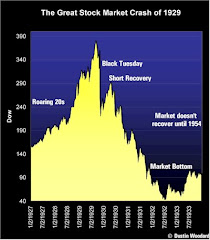It has been quiet on the pension front for a while after the Finance Ministers meeting in Kananaskis.
Kananaskis helped to solve some of the country's pension problems. One big burden for taxpayers will continue, this is the cost of public sector pensions.
As I have watched the pension issue it has traveled across the big pond from Europe and arrived in the US and is on it's way to Canada. It has been a slow moving Titanic, picking up some speed with the recent financial crisis. The icebergs have been spotted but the Titanic cannot be stopped.
Brief History
The first issues in pensions were spotted in Europe. When Sarkozy came into power in France he identified the problems with pensions. We know the rest of the story and the riots that persisted as he tried to implement minor changes. Next the story moved to the UK and Ireland. The problems on the island intensified with the onset of the financial crisis. Both these countries are in the process of dealing the pension issue now.
Next stop was the United States.
The pension issue has reached a crescendo in the US. Many states are in severe financial difficulty over their pensions and are having to make drastic changes. Fingers are pointed in all directions as to who was at fault.
Two interesting articles are presented in USA Today. One article Lavish benefits hurt states points the blame at unions and politicians.
The fact is, the financial situation for many states is dire. Like the federal government, they are getting clobbered by rising health costs. Unlike the federal government, they have a massive problem of lavish retirement benefits for public employees. The Pew Center on the Statesunderfunded these plans by $1 trillion. estimates that state and local governments have promised $3.35 trillion in benefit plans and have
In some states and localities, it is not uncommon to see pensions of 2.5%-3% of a worker's final salary, times the number of years worked. At 3%, a worker can retire in his or her 50s, after 33 years of service, and continue drawing the same income. With deals like this, plus retiree health benefits, New York City now spends $144,000 a year for a sanitation worker, according to the Manhattan Institute think tank.
These lavish deals are draining money from core services, including teachers in the classroom, cops on the beat, prison beds, libraries and parks. In some states, even cuts in these programs, plus tax hikes, aren't enough to balance their budgets.
It is time for a major rethinking. An obvious solution is one that most Americans know well — 401(k)-type savings plans. Their widespread usage would make it harder to hide liabilities from taxpayers while reducing "pension envy" between private and public sector workers. At the least, such plans should be universal for new state and local hires.
A prime reason that pension costs have spiraled out of control is that spineless public officials can satisfy an important constituency by creating liabilities that won't come due until well after they leave office. When that important constituency is organized labor, which can apply political pressure and, in most states, bargain collectively, this possibility soon becomes an imperative.
The Other article in USA Today puts the Blame Wall Street
Let's be clear: Underfunded pension systems resulted from unprecedented losses of asset values caused by reckless behavior on Wall Street and the refusal of some politicians to make their required payments. As recently as 2007, pension funds had, collectively, 96% of the assets required to meet future expenditures. But Wall Street drove America's economy and retirement security into a ditch. And now both pension and 401(k) accounts alike must be rebuilt.
An excellent interview with the mayor of San Diego talks about how the blames falls not just on one party but many. California Foundation for Fiscal Responsibility
The Fiscal Reality
The reality is that defined benefit pensions have become a Ponzi Scheme that cannot be stopped and like all ponzi schemes will end with someone holding the bag.
Unfortunately it will not end well for anybody. It is destined to be a lose-lose situation for both pensioners and taxpayers. Pensioners at the bad end will find they have paid for pensions all of their working careers and find the pensions short. Taxpayers will learn that dollars are going to retired workers rather than the roads, schools and hospitals that deserve their taxes.
It is a trade-off for the pensions and benefits of retired workers or the goods and services that government are supposed to provide. There is an excellent article here from Seeking Alpha called Why Public Sector Union Compensation Matters
Now the generosity of the public sector pensions is even being questioned by the brethren in the private sector unions. As the article states:
As Bill McGurn points out in a recent Wall Street Journal column, public sector unions don’t just have to worry about a taxpayer revolt. They also must be concerned about a mutiny among private sector unions. Private sector unions with insight into corporate balance sheets and market competition recognize that $1 million pensions are unrealistic burdens to place on employers. Attempts to change the subject and blame “corporate greed” simply do not resonate. Put simply, it is difficult to conceive a way to address the current – and projected – state fiscal crisis without dramatic reductions in state and local employee benefits.
Finally the issue is coming to Canada. As Dr Suess told in the Grinch ... It started in low... then it started to grow. Two recent articles in Canada record the growing concern with pensions in Canada. Like the rest of the world the issue will cause much grief.
The public sector should be treading lightly on the pension issue and try and protect what they have. Unfortunately they will stick to demands that will end catastrophe.Good news for taxpayers or a dose of double dipping?
Have you heard St. Thomas-Elgin General Hospital CEO Paul Collins retired last year?
As it turns out, Collins' retirement lasted perhaps a day or two and then Babcock and the board rehired Collins and installed him in his former post at the same compensation, almost $205,000 in 2009, at the same time he is collecting his pension.
Bill Tufts - Fair Pensions For All




Hello,
ReplyDeleteI am Emily Jones and I am a member of some financial communities. I just visited your site ( http://fairpensionsforall.blogspot.com/ )and trust me you are doing a good job for your site. I read some of the articles of your site and I really found them worth reading. The quality of your content is excellent. It will help you to earn extra value from Google.
After seeing this, I would like to do something for your site and that is for FREE!!. I love to write financial articles and I would like to contribute something for your site if you'll give me the permission. I can give you an original guest post and I assure you that it will be published only in your site.
Please let me know your thoughts. Waiting for your positive reply. Reach me at: emily.jones025@gmail.com
Thanks and Regards
Emily Jones
Article Marketing Executive